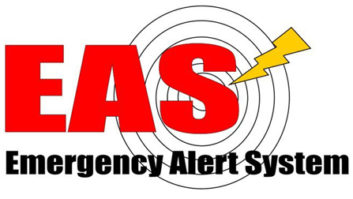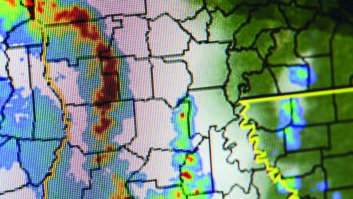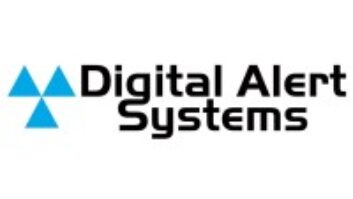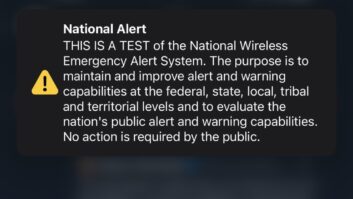The FCC hopes to have its EAS reporting system online early next week.
Greg Cooke, associate chief of the Policy Division for the FCC’s Public Safety and Homeland Security Bureau, said in a webinar Thursday that a special one-day handbook in time for the national test would be available at www.fcc.gov/nationwideeastest.
Audio Public Service Announcements about the national EAS test, in English and Spanish, are available for download on that site, as well as on NAB, FEMA and SBE sites.
The commission hopes stations will use the handbook in conjunction with FEMA’s EAS Best Practices Guide.
The national EAS test is scheduled for Nov. 9. Cooke said the FCC encourages stations to log onto the site before the test and fill out basic station identification information. Then, on Nov. 9, it would like stations to report online simply whether they received the EAS test and if they could re-transmit it, with follow-up information to be reported within 45 days.
Online reporting is voluntary, though if stations do use the online form, they do not also need to file a paper report, Cooke said.
Asked if a broadcaster that owns multiple stations would need to file a report for each one, Cooke said: “We really want information broken down by encoder/decoder, and the links between all of those. Anywhere there’s a box, we want to know what happened.”
If one EAS encoder/decoder feeds multiple stations, only one report is needed; however the agency wants information pertaining to all of those stations.
On Nov. 9, the federal government will activate the EAS through its 60 Primary Entry Point stations which, in turn, will relay the message to LP1 stations, where the message will continue on down the daisy chain to reach the public.
FEMA is encouraging stations to determine ahead of time what source they are supposed to monitor to receive the EAS message. It encourages stations that may not have a PEP source to see if their EAS encoder/decoder can monitor their local NPR member station and receive the EAS message through NPR’s Public Radio Satellite System.
NPR has a direct link to FEMA for its news advisory or “Squawk” channel; that link is tested every week, according to NPR VP/CTO Mike Starling, who’s also executive director of NPR Labs. NPR Master Control Supervisor Mitch Eaton suggested stations go to NPR’s website to find local member stations in their area and contact that station.












